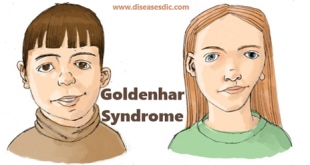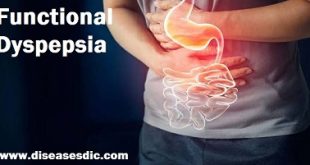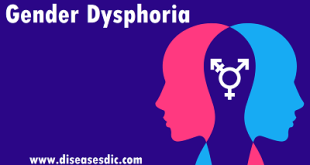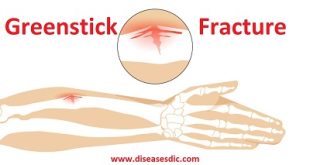Definition
Gastritis is an inflammation, irritation, or erosion of the lining of the stomach. This may be caused by many factors including infection, alcohol, particular medications and some allergic and immune conditions. It can be either acute (with severe attacks lasting a day or two) or chronic (with long-term appetite loss or nausea). In many cases, gastritis has no symptoms (asymptomatic). Some forms, including chronic atrophic gastritis, have been associated with an increased risk of stomach cancer. Treatment options include avoiding exposure to known irritants and taking medication to reduce the amount of gastric juices.
Types of Gastritis
There are two main types:
Acute gastritis: Acute gastritis can cause pain and swelling in the stomach but generally does not last for a long period of time it stops within a few days.
Acute gastritis
Chronic gastritis: It is just that chronic. This refers to it lasting for a long period of time. Someone may have chronic gastritis and not even realize it because symptoms are dull and not severe.
Chronic gastritis
Gastritis risk factors
Risk factors include the following:
- Alcohol use
- Bacterial infection (e.g., Helicobacter pylori)
- Certain medications
- Aspirin
- Chemotherapy drugs (used to destroy cancer cells)
- Iron and potassium supplements
- Nonsteroidal anti-inflammatory drugs (NSAIDs; e.g., ibuprofen, naproxen)
- Steroids
- Erosion or thinning of the stomach lining (e.g., due to age)
- High levels of stress
- Smoking
Causes
A major cause of both acute and chronic gastritis is infection of the stomach mucosa by a bacterial species named Helicobacter pylori. Usually, this bacterium first infects the stomach antrum (stomach mucosa without acid-producing cells) acutely and may progress to infect most or all of the stomach’s mucosa over time (chronic gastritis) and remain there for years. This infection generates an initial strong inflammatory response and eventually, a long-term chronic inflammation with intestinal cell changes may develop. Another major cause of acute and chronic gastritis is the use (and overuse) of nonsteroidal anti-inflammatory drugs (NSAIDs).
However, there are many other causes of chronic gastritis may occur with repeated or continual presence of most of these causes:
- Bacterial, viral and parasitic infections
- Certain drugs (cocaine)
- Alcohol
- Bile reflux
- Fungal infections
- Allergic reactions
- Stress reaction
- Radiation
- Certain food poisonings (infectious and chemical)
- Trauma
In general, infectious agents, especially Helicobacter pylori, and NSAIDs are responsible for the majority of people with gastritis.
Symptoms of Gastritis
The signs and symptoms include:
- Gnawing or burning ache or pain (indigestion) in your upper abdomen that may become either worse or better with eating
- Nausea
- Vomiting
- A feeling of fullness in your upper abdomen after eating
- Gastritis doesn’t always cause signs and symptoms.
Diagnosis and test
Gastritis is diagnosed based on the patient’s symptoms and history of a previous diagnosis and treatment of gastritis, alcohol consumption, and use of NSAIDs. Definitive diagnosis is made by identifying the underlying cause of the gastric mucosal inflammation and/or by tissue (gastric) biopsy.
For example, the major infective cause is Helicobacter pylori (H. pylori). This bacterium can be detected by breath, blood, stool, immunological and biopsy tests. Although the bacterium can be cultured from the patient, this is seldom attempted. Other pathogens can be identified using culture, stool and immunological tests.
Biopsy of the stomach mucosa, done during endoscopy examinations, is often used in patients to identify the causes of chronic gastritis and may allow visualization of mucosal erosions and other stomach mucosal changes. Abdominal X-rays or barium studies (upper or lower) may demonstrate the presence of thickened mucosa and folds that are signs of inflammation in the stomach.
Treatment and medications
Treatment depends on the specific cause. Acute gastritis caused by non steroidal anti-inflammatory drugs or alcohol may be relieved by stopping use of those substances.
Medications used to treat gastritis include:
Antibiotic medications to kill H. pylori: For H. pylori in your digestive tract, your doctor may recommend a combination of antibiotics, such as clarithromycin (Biaxin) and amoxicillin (Amoxil, Augmentin, others) or metronidazole (Flagyl), to kill the bacterium.
Medications that block acid production and promote healing: Proton pump inhibitors reduce acid by blocking the action of the parts of cells that produce acid. These drugs include the prescription and over-the-counter medications omeprazole (Prilosec), lansoprazole (Prevacid), rabeprazole (Aciphex), esomeprazole (Nexium), dexlansoprazole (Dexilant) and pantoprazole (Protonix). Long-term use of proton pump inhibitors, particularly at high doses, may increase your risk of hip, wrist and spine fractures. Ask your doctor whether a calcium supplement may reduce this risk.
Medications to reduce acid production: Acid blockers also called histamine (H-2) blockers reduce the amount of acid released into your digestive tract, which relieves pain and encourages healing. Available by prescription or over-the-counter, acid blockers include ranitidine (Zantac), famotidine (Pepcid), cimetidine (Tagamet HB) and nizatidine (Axid AR).
Antacids that neutralize stomach acid: Your doctor may include an antacid in your drug regimen. Antacids neutralize existing stomach acid and can provide rapid pain relief. Side effects can include constipation or diarrhoea, depending on the main ingredients.
Complications
Complications of untreated chronic gastritis include:
Anemia: erosive gastritis can cause chronic bleeding which, in turn, can lead to anemia
Atrophic gastritis: chronic inflammation in the stomach can cause the loss of both the stomach lining and glands
Peptic ulcers: ulcers can form in the lining of the stomach and duodenum
Growths in the stomach lining: the risk of both benign (noncancerous) and malignant (cancerous) growths increases in people with gastritis. If the gastritis is caused by H. pylori bacteria, it also increases the risk of a specific form of cancer known as gastric mucosa-associated lymphoid tissue (MALT) lymphoma.
Prevention
- Some cases are caused by viral infection. This means that a person may protect his or her own health by preventing contact with Helicobacter pylori.
- Another important restriction to make, in order to prevent gastritis, is to stop using aspirin, ibuprofen, naproxen and any other medications that can irritate the stomach lining and cause inflammation.
- People should also drink alcohol only in moderation. This means up to one drink a day for women and two drinks a day for men.
- It is also important to avoid taking acid and carbonated beverages, coffee and juices with citric acid. One should also avoid smoking, and stop it completely if possible.
 Diseases Treatments Dictionary This is complete solution to read all diseases treatments Which covers Prevention, Causes, Symptoms, Medical Terms, Drugs, Prescription, Natural Remedies with cures and Treatments. Most of the common diseases were listed in names, split with categories.
Diseases Treatments Dictionary This is complete solution to read all diseases treatments Which covers Prevention, Causes, Symptoms, Medical Terms, Drugs, Prescription, Natural Remedies with cures and Treatments. Most of the common diseases were listed in names, split with categories.








very helpful article. l had difficult days seeing doctors after doctors. Your article made me acquired the right info which I believe is will help manage the situation. Thanks so much.
very helpful I get recover from stomach ulcer without consulting any Doctor.
8.5 years ive suffered visciously with atrophic gastiritis as my docs coudnt diagnose the problem, agony, the break up of my engagement, family fall.outs all coz of this, within 2 days of reading this ive nevr felt so damn good is years, its not all gone pain wise but a massive improvement, i cannot thank you enough for youre work with this app, truly a God send in regards to myself, Thank you, a huge thank you, dale..
I have stomach ulcer since 2017
please help me
Please consult a doctor to get treated.
very easy to understand i like it these type of definition nd more details presented by you people
i need information about
Barretts esophagus disease.
Sure very soon we will upload, keep reading our app.
wat is best treatment of chronic gasterites
The most common medicines to reduce gastric acid are:
antacids, including calcium carbonate (Rolaids and Tums)
H2 antagonists, such as ranitidine (Zantac)
proton pump inhibitors, such as omeprazole (Prilosec)
Indeed very educative presentation. Thanks
sir please advise diet to control gastric at home… tell me some food habits that I gave to follow.
Avoid acidic foods and better consult a nutritionist for better diet chart.
Very very very very very very very helpful information…thanks for this, it has really helped …keep up the good works of helping people live wisely,and eat wisely …kudos
I suffer this condition a lot but after reading this script I came to realised the right thing happening to me.
I discovered that the side effect of abdominal pain associated with esomeprazole is unbearable. what can I do to bring down the pain. thank you
if you feel any side effects of a drug kindly contact a doctor for better treatment. We strongly insist you not to self consume a medicines without a doctor’s prescription.